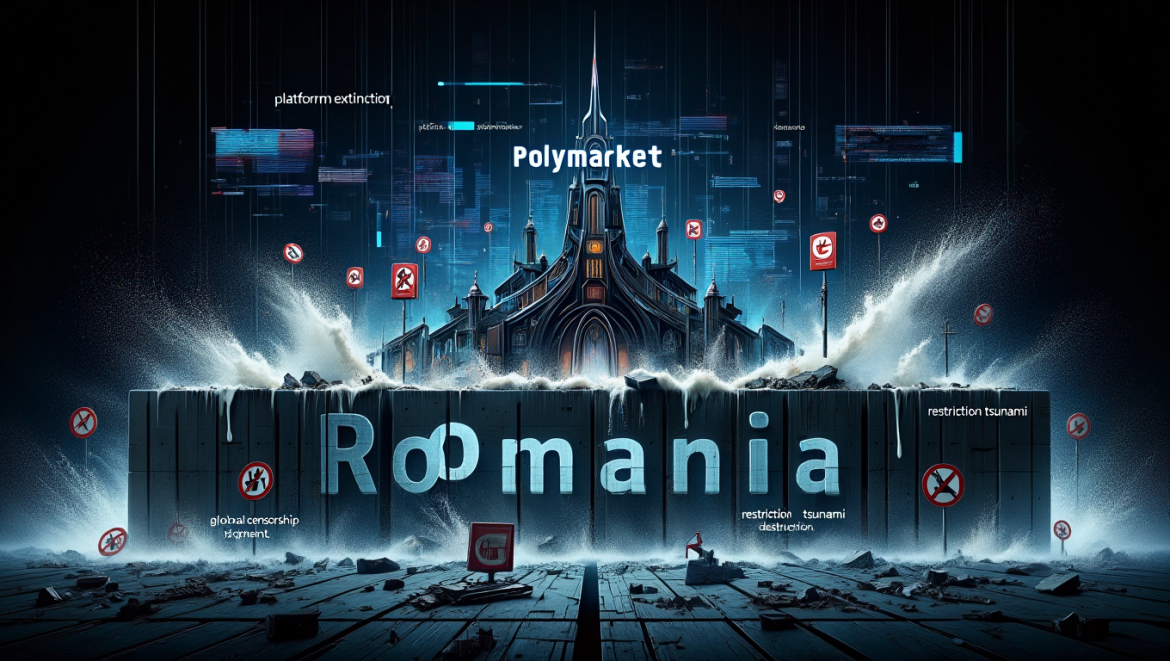The regulatory noose is tightening around prediction markets. Romania’s National Office for Gambling (ONJN) has officially announced Polymarket ban , dealing another blow to the popular crypto-based platform.
Polymarket Ban Expands as Romania Cracks Down
This Polymarket ban adds to a growing list of countries—including the US, France, and Singapore—that have restricted the site for operating as an unlicensed gambling service. The move highlights the intense global scrutiny facing decentralized prediction platforms, regardless of their technological innovation.
Behind the Polymarket Ban: Regulators Draw a Hard Line
So, what sparked this specific action? Romanian authorities pointed to a massive surge in betting activity during the country’s recent presidential and local elections. Polymarket’s trading volume reportedly exceeded $600 million, drawing regulatory ire. The ONJN firmly stated that the platform’s model constitutes “counterpart betting,” where users wager on uncertain future events. President Vlad-Cristian Soare made it clear: “This is not about technology, but about the law.” Whether using fiat or crypto, the activity is considered gambling and requires a license. Consequently, Romanian internet providers must now block access to the site.
A Glimmer of Hope: Polymarket’s Planned US Relaunch
Despite the escalating global crackdown, Polymarket isn’t backing down. In a highly bullish development, reports indicate the platform is preparing to resume limited trading for US users before the end of November. This strategic comeback follows a key regulatory green light: the CFTC issued a no-action letter to a crypto derivatives exchange acquired by Polymarket. This clever maneuver effectively paves the way for a compliant return, initially focusing on sports-related markets. This demonstrates the platform’s resilience and its commitment to working within regulatory frameworks.
The Bigger Picture: Innovation vs. Regulation
This situation represents a classic clash between innovative crypto projects and established legal boundaries. While Polymarket brands itself as “event trading,” global regulators uniformly see it as gambling due to its core mechanics. The platform’s immense popularity—evidenced by its massive election volume—proves there’s huge demand for these markets. Its ability to secure a $2 billion investment from the Intercontinental Exchange (owner of the NYSE) amidst these challenges signals that institutional backers believe in its long-term potential.
My Thoughts
This is a pivotal moment for the prediction market space. The bans show that regulators won’t tolerate unlicensed operations, even on blockchain. However, Polymarket’s planned US return is a masterstroke. If successful, it could create a blueprint for other decentralized platforms to operate legally. The demand for these markets is undeniable; the future lies in finding compliant pathways to serve that demand.



